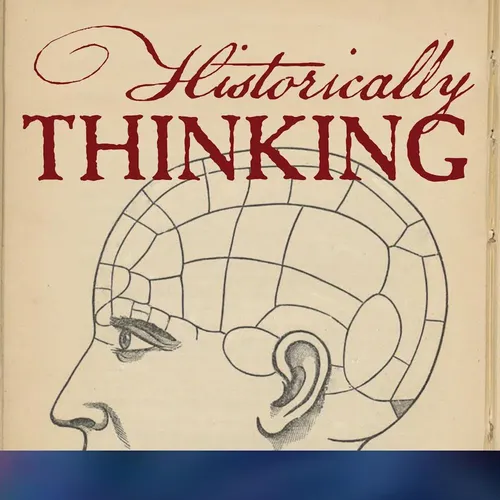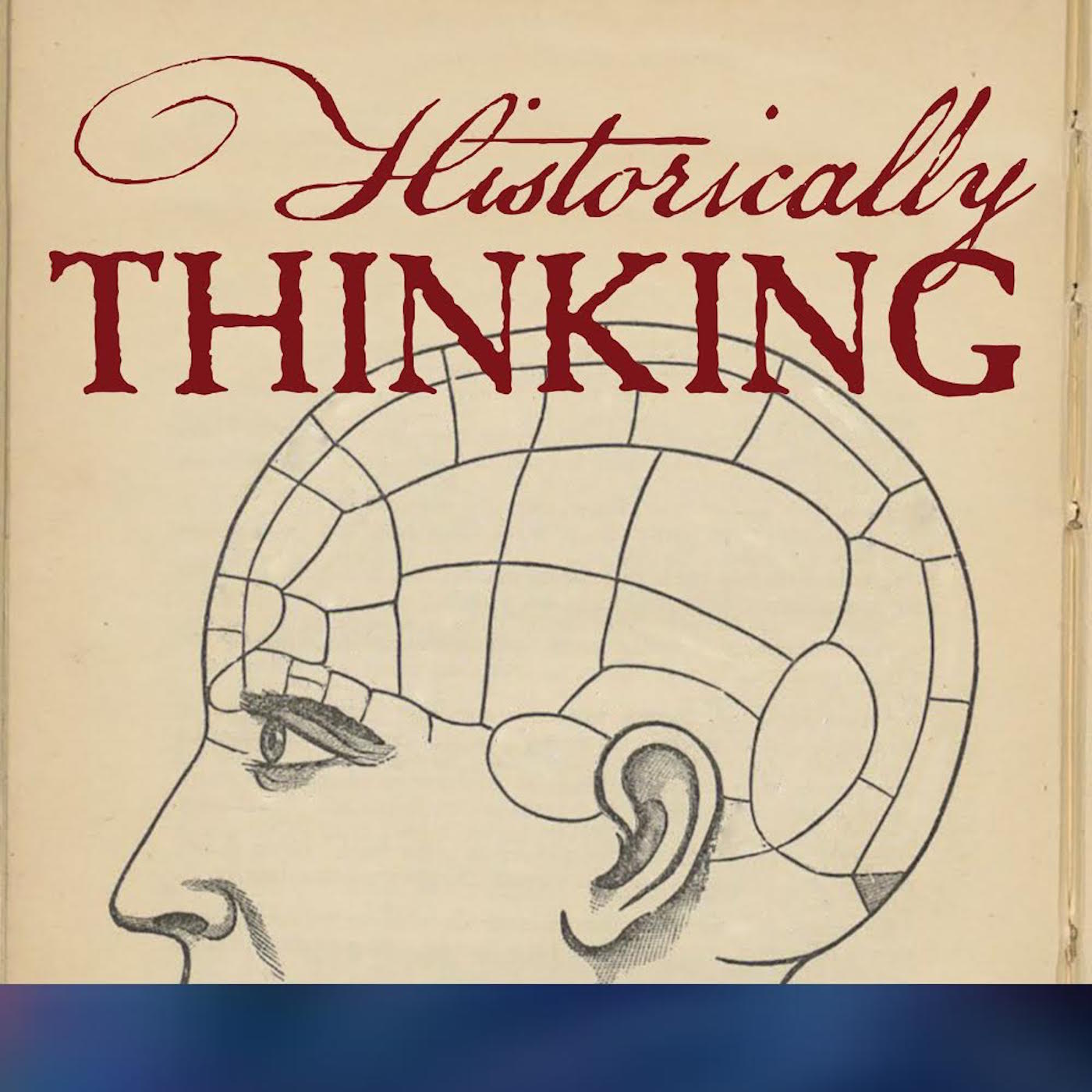
Historically Thinking
We believe that when people think historically, they are engaging in a disciplined way of thinking about the world and its past. We believe it gives thinkers a knack for recognizing nonsense; and that it cultivates not only intellectual curiosity and rigor, but also intellectual humility. Join Al Zambone, author of Daniel Morgan: A Revolutionary Life, as he talks with historians and other professionals who cultivate the craft of historical thinking.
- Update frequency
- every 6 days
- Average duration
- 62 minutes
- Episodes
- 312
- Years Active
- 2019 - 2025

Cold War Analogies: Francis J. Gavin on how (and how not) to use the Cold War as a guide
We reach for the Cold War as if it were a really good pocket tool: compact, familiar, ready to deal with any problem in today’s world. U.S.–China rivalry? “Cold War 2.0.” Russia and the West? “Cold W…

Prague: The Heart of Europe
Introduction
Each year millions of tourists visit the Czech capital, awed by its blend of architectural styles and dramatic landscape. St. Vitus’s Gothic cathedral towers above the Charles Bridge and …

Thinking Historically: Francis J. Gavin on What History Can Do for Policymakers...and the Rest of Us
It might seem obvious that the study of history ought to improve the crafting of public policy. Surely if we understand the past, we should be able to make better decisions in the present—especially…

Jews vs. Rome: Two Centuries (or More!) of Rebellion Against the World's Mightiest Empire, with Barry Strauss
In 1960 Yigael Yadin, formerly chief of the Israeli general staff and by that year a prize winning archaeologist, visited the home of Israel’s president David Ben-Gurion, and said to him “Mr. Preside…

Amanda Roper, Public Historian
Amanda Roper is a public historian who has spent her career working to preserve historic places and share traditionally underrepresented stories from America's past. She has been Director of the Lee-…

The Ramos Gin Fizz: A New Orleans Liquid History, with John Shelton Reed
Join Al Zambone and guest John Shelton Reed (author of The Ramos Gin Fizz, for the LSU Press series on iconic New Orleans cocktails) for a deep dive into the history, culture, and legend of the Ramos…

Thomas Jefferson and the Fight Against Slavery, with Cara Rogers Stevens
In the past we’ve had entire conversations on Historically Thinking–indeed, many conversations, a whole series of conversations–on intellectual humility and historical thinking, often asking “how hav…

Spellbound: Molly Worthen on Charisma, Four Centuries of American History, and the Search for Meaning
Hello: Autumn, 1949. Fortune editor Bill Furth, flinty-eyed gatekeeper, scans a manuscript from 30-year-old whiz kid Daniel Bell. Spots the word “charisma.” Snorts. Blue pencil meets page. Word dies …

The Great Museum of the Sea: A Human History of Shipwrecks, with James Delgado
Shipwrecks as events are probably humanity’s most common form of disaster”, writes my guest James Delgado
“As such, shipwrecks–aside from epidemics, warfare on land, or great natural disasters—have b…

Phantom Fleet: U-Boats, Codebreakers, and the Daring Capture of U-505, with Alexander Rose
There is a U-boat in the middle of Chicago. It’s attached to the Museum of Science and Industry in Hyde Park. Generations of Chicagolanders, and their cousins from far away, have walked through U-505…

Light on Darkness: The Untold Story of the Liturgy of the Western Christian Church, with Cosima Clara Gillhammer
The liturgy of the Christian church is often dismissed today as archaic, arcane—or dead. But as Cosima Clara Gillhammer shows in her new book Light on Darkness: The Untold Story of the Liturgy, these…

Londoner, Lawyer, Humanist, Husband, Statesman, Saint: The Life of Thomas More, with Joanne Paul
His friend the great scholar Desiderius Erasmus referred to Thomas More as “a Man for all seasons.” But which season? Or which Thomas More? Is he an advocate of conscience? A heroic defender of the C…

The Accidental Tyrant: Kim Il-Sung’s Rise to Power, and How He Kept It, with Fyodor Tertitskiy
In September 1945, various factions within the Soviet state were determining how the new nation of North Korea would be ruled, and who would be its leader. In late September a list was generated of p…

Joseph Smith: The Rise and Fall of an American Prophet, with John G. Turner
Joseph Smith was the founder of the Church of Jesus Christ of Latter Day Saints, known by those outside the church during his life and today as the Mormons. But Joseph Smith was many things besides: …

Revolution to Come: Dan Edelstein on Thinking About Revolution...and History
“How we think about revolution,” writes my guest Dan Edelstein, “is ultimately conditioned by how we think about history.” Classical philosophers viewed history as chaotic and directionless, and soug…

Stephen Aron and Barry Strauss on History, Engaging a Wider Public, and Intellectual Humility

Episode 406: Rogue Agent

Episode 405: Free Creations

Episode 404: Intellectual Humility, with Mikaberidze and Nelson
